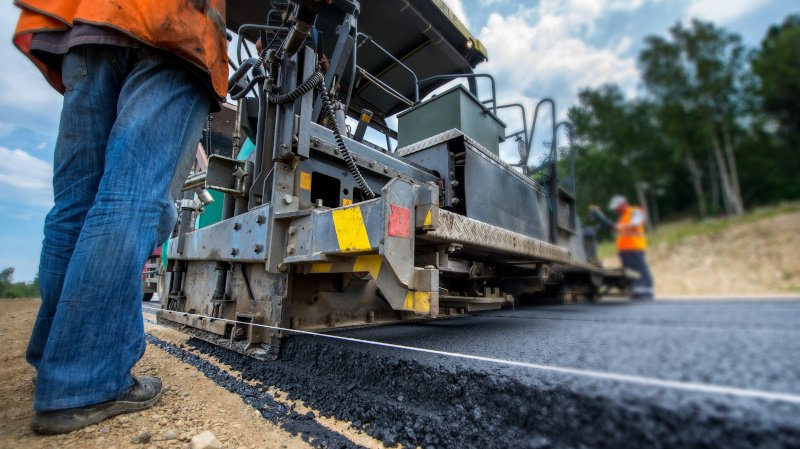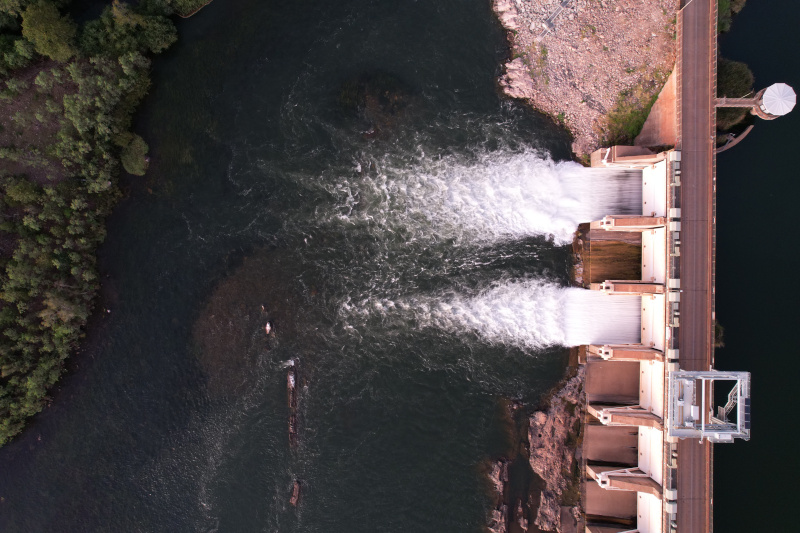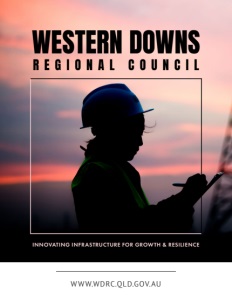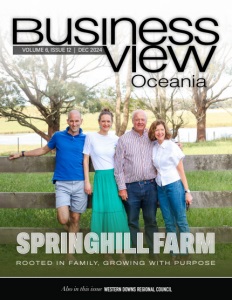Western Downs Regional Council
Innovating Infrastructure for Growth and Resilience
Driving regional growth with innovative water and road infrastructure projects that support resilient, thriving communities.
The Western Downs Council is at the forefront of delivering transformative infrastructure and services across one of Queensland’s most diverse and vibrant regions. Graham Cook, General Manager of Infrastructure Services, shares how the council’s strategic projects are shaping communities while addressing both current and future challenges.
Building Tomorrow’s Water Supply, Today
Water security stands as a critical challenge for the Western Downs region, and the council has developed a sophisticated, forward-looking approach to meet this need. Cook highlights the complex landscape driving their water management strategy. “We’re in an area where there’s huge industry growth with the coal seam gas industry,” he explains. “We’ve seen the introduction of wind farms and solar farms, so there’s a lot going on,” he adds, emphasizing the importance of the council to be on top of infrastructure requirements.
Cook adds, “we’ve put a lot of work into our road network and we’ve put a lot of work into our water infrastructure specifically to make sure that we’ve been able to cater for the growth in the region right now.”
The Dalby water project, planned since 2014, exemplifies the council’s proactive approach to planning. “We identified that with population growth we would at some stage be really struggling to meet our water needs,” says Cook.
”Dalby gets most of its water from the bore water supply. Originally, they were in the Condamine Alluviums, which are shallow and easily treated. The deeper you go, the harder it is to treat and more expensive to treat. We’ve also got a supply in the river, which is from the Condamine River. When it’s full, there’s no dramas, but it’s not as reliable as we’d need it for a town supply for the 14,000 people in Dalby,” Cook explains.
“Prior planning identified that 2024 was about when we needed to start this project and as it turned out, that’s come to fruition,” he adds.
A pivotal moment in the council’s water infrastructure journey came with a groundbreaking technological achievement. “We built the first municipal DeSAL plant in Australia to treat a town supply,” Cook states proudly. They’ve since expanded the technology to other urban areas in the region, with the latest phase treating the Great Artesian Basin.
The project’s strategic considerations are comprehensive. When the existing water treatment plant was flooded in January 2011, the council saw an opportunity for strategic relocation. “We’ve had to spread the bores out for about 10 kilometres to avoid drawdown in the aquifer,” Cook explains. The new facility is situated on flood-free land, providing a critical 2.2 megaday emergency water supply.
“It’s really been a process of working through to eliminate risks and driving which part of the project we develop,” says Cook. While the project progresses to the assessment stage, the council will soon be able to test the water supply.

Rebuilding Stronger: Flood Recovery with a Vision
The Western Downs flood recovery program emerged as a landmark initiative that showcased the council’s resilience and strategic thinking. Approved for $167 million, it represented the largest flood recovery program in Queensland, targeting extensive damage to the region’s critical road infrastructure.
“In 2021/2022, there was a significant flood event which impacted the whole of Queensland and a lot of New South Wales as well,” Cook explains. The council’s response was both comprehensive and innovative. “We’ve had to go about planning and trying to resource that, which is a significant amount of work because it’s got to be completed within two years.”
The program’s approach was groundbreaking in its execution. “We used a hybrid model of outsourcing the scoping of the projects,” Cook notes. This strategy allowed for maximum efficiency and quality control while maintaining a strong commitment to local economic development. Cook adds, “our engagement with our suppliers has really been key to delivering successful projects. I think something like 93 or 94 percent has been delivered by local suppliers within Western Downs.”
Financial management became a hallmark of the program’s success. “Because of the method of engagement with the contractors in the market, it’s looking like the delivery of the program will be about $50 million under the recognised funding, so at about $120 million. That’s where it’s landing, to the point that the Queensland Reconstruction Authority have now said that we’re now no longer the largest program by value because we’ve delivered so much under,” Cook shares.
By the project’s completion in December 2024, approximately 1.5 million tonnes of gravel will have been used to replace lost road network materials. This is particularly significant given that Western Downs boasts the second-largest road network in Australia, underscoring the magnitude of the recovery effort.

Laying the Foundation for Growth
The Western Downs Council’s strategic projects are fundamentally about building community resilience and driving regional growth. Infrastructure is not just a technical necessity, but a critical tool for supporting a thriving, dynamic community.
“We want to maintain the level of our infrastructure,” Cook states, “we need to make sure that our asset management is at its best to make sure we limit the cost of maintenance and replacement of infrastructure and the road network”.
Water remains a critical priority, especially with ongoing energy development and potential hydrogen projects. The council is exploring comprehensive long-term solutions, including the potential Nathan Dam project.
“When it was planned, there was always going to be a pipeline back into Western Downs from the dam, which basically provided more water from the outside of this catchment,” Cook explains. This forward-thinking approach extends to other towns like Chinchilla, which has seen significant growth. Here the council anticipates water capacity challenges, similar to those seen in Dalby 10 years ago.
“We’re sort of seeing that within seven years we would be required to do something to increase our water capacity in that area, we’ve got some plans of potential off-stream water supplies and maybe extra allocation out of the river,” Cook adds. The approach is comprehensive, balancing immediate requirements with long-term sustainability.
“There’s a lot of things going on right now, that’s all at a planning stage,” Cook adds. With water and transport identified as two critical priorities for the region, he underscores the vital role of infrastructure in supporting and sustaining these essential sectors.
Shaping the Future of Regional Development
The Western Downs Council demonstrates how proactive planning, innovative solutions, and close engagement with suppliers can transform challenges into opportunities. From securing water supplies for the future to rebuilding infrastructure with resilience in mind, the council is setting a high standard for regional development.
By prioritizing sustainability, innovation, and growth, Western Downs is not just addressing the needs of today—it is laying the groundwork for a prosperous tomorrow.
AT A GLANCE
Western Downs Regional Council
What: Leading regional development through innovative infrastructure projects, including water supply management and road recovery programs.
Where: Western Downs Region, Queensland, Australia
Website: https://www.wdrc.qld.gov.au/Home
PREFERRED VENDORS
Chris Buckley Plumbing and Civil – melissa@chrisbuckleyplumbing.com.au
Regional Queensland’s leader in Water and Sewerage Infrastructure
Chris Buckley Plumbing offers a highly experienced management team, skilled field personnel and a large range of specialist plant and equipment, with a reputation for high quality work, innovative design solutions and excellent community relations.
Lineage Group – www.lineage.group
MJ Smith Ground Preparation – www.mjsmithgroundprep.com.au
MJ Smith Ground Preparation Pty Ltd is a family-owned company with modern and well-maintained plant and equipment. The company offers services across Northern NSW and SE Queensland, including earthmoving, civil construction, and heavy haulage. Regardless of the job or location, the company aims to provide satisfactory outcomes for its clients.
Quarry Mining Haulage – https://quarrymininghaulage.com.au/
Sullivan Consulting Engineers – admin@sceqld.com.au







 This information will never be shared to third parties
This information will never be shared to third parties